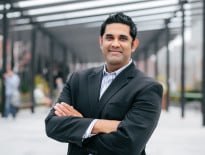The retail landscape is shifting. After increasing growth in recent years across secondary markets, investment and development momentum is veering toward these non-gateway markets. The suburbs are hot – and investors are noticing.
Why are investors starting to pay more attention to these markets? Here are a few reasons why suburbs are at the top of the list for investors seeking retail:
Suburban markets offer higher returns. Rising occupancy and rental rates in secondary markets yield higher returns due to lower cap rates. In these markets, investors can buy at a better price opportunity for growth, compared to that within a core market, which gives skillful owners the ability to control returns better by creating value in a property. While some investors may perceive secondary markets returns as more volatile, necessity-based retail, like grocery-anchored shopping centers, are a defensive investment and are more likely to withstand a market cycle.
Millennials are moving to these markets. With Millennials leading the charge, suburban markets are seeing an influx of growth. Last year, according to Realtor.org, Millennials – the largest generation in American history – purchased 35 percent of homes sold in the U.S. As this generation, which came of age in the recession, begins to raise families while faced with historically high student debt and rising real
estate costs, these markets are becoming more and more appealing. Shopping centers in these areas will need to adapt to accommodate this demographic’s consumer needs and behaviors, including bringing in more fresh format and limited assortment grocers like Trader Joe’s and 365 by Whole Foods.
Retail in suburban markets is convenient and increasingly experiential.For the neighborhoods it serves, grocery-anchored retail in suburban markets is accessible and quick to adapt to reflect the surrounding community. As ICSC’s CEO Tom McGee notes, the trend is moving toward shopping centers that seem as inviting as a town center. When the community can physically come together through shared experiences, be it at outdoor seating or a free yoga class, these shopping centers will remain engaging and keep the neighborhood coming back.
Fundamentals in these markets are improving. Since these markets are still emerging, cap rates remain stable with enough room for urban developments to continue to prosper. At Unison, we focus on the fundamental of a property, looking for properties with the right location, tenants and individual attributes, which are often located in secondary markets.
Grocery-anchored shopping centers will maintain a constant presence in suburban markets. As the economy continues to grow and investment in these markets increases, investors will benefit from a unique, cost-effective opportunity for returns without encountering the consequences of the fully permeated urban core.
Karim Fadel is the founder and principal of Unison Realty Partners, a Boston-based privately held retail real estate investment management firm that specializes in acquiring grocery-anchored community shopping centers.




 |
| 



